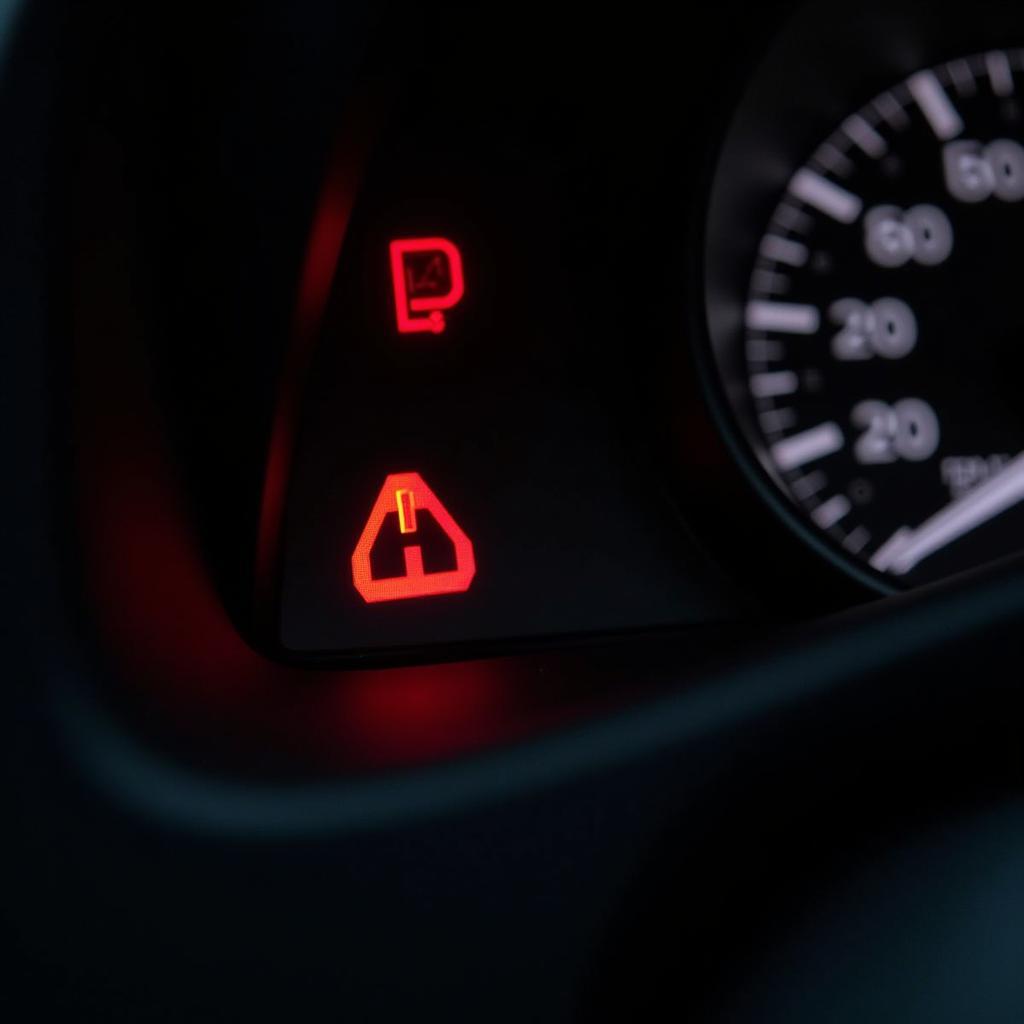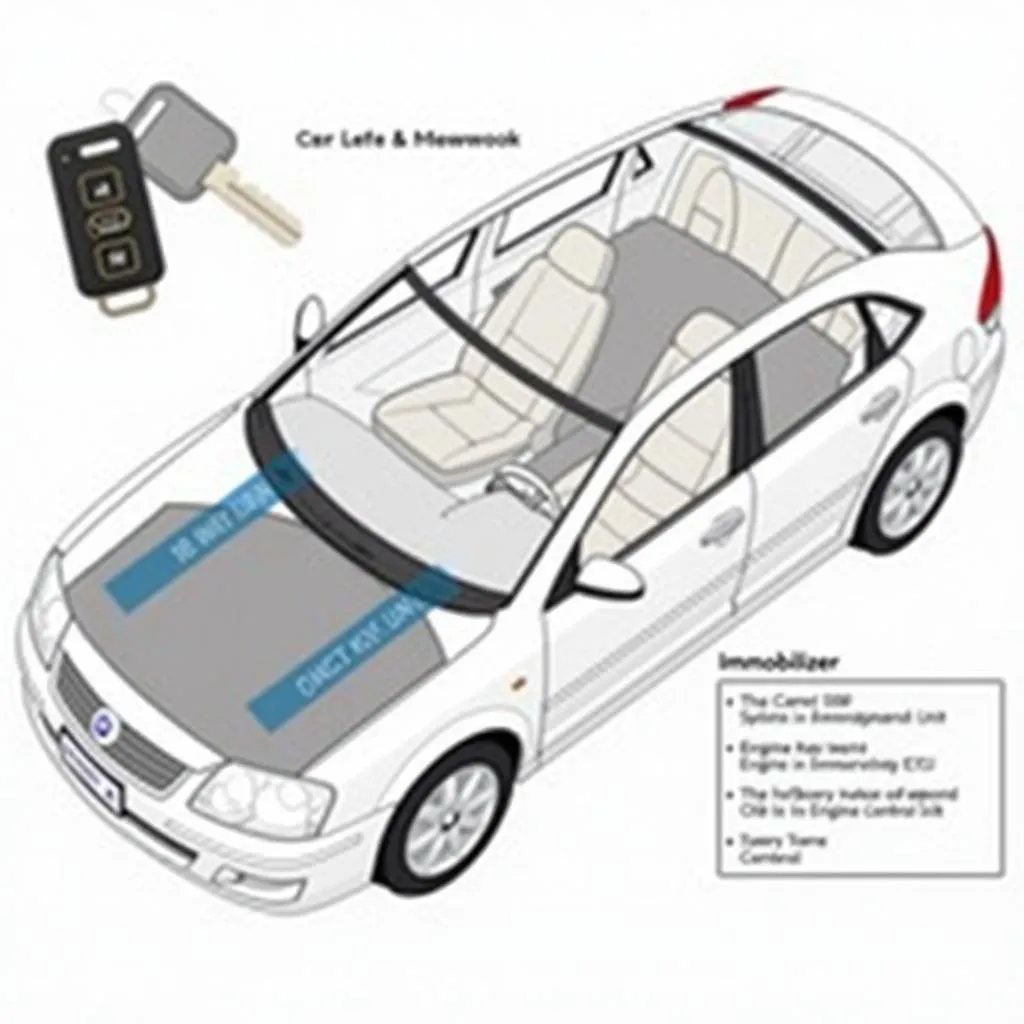The brake warning light on your Volkswagen Jetta dashboard is a crucial safety feature, illuminating when the car’s onboard computer detects an issue within the braking system. Ignoring this warning light can lead to serious safety hazards and potentially costly repairs. This article will guide you through the common causes of a Volkswagen Jetta brake warning light and provide insights on how to address them.
Understanding Your Jetta’s Brake Warning System
Modern Volkswagen Jettas, like many vehicles, utilize sophisticated electronic systems to monitor and control braking. While the traditional hydraulic system remains responsible for physically stopping the car, sensors and control modules play a vital role in ensuring optimal performance and safety. The brake warning light serves as the primary communication channel between these complex systems and the driver.
Common Causes of a Volkswagen Jetta Brake Warning Light
Several factors can trigger the brake warning light in your Jetta. Here are some of the most common culprits:
- Worn Brake Pads: This is the most frequent reason for the warning light to appear. Jettas are equipped with brake pad wear sensors that trigger the light when the pads thin down to a certain level, signaling the need for replacement.
- Low Brake Fluid Level: Brake fluid is the lifeblood of your car’s braking system, transmitting the force applied to the brake pedal to the wheels. A drop in brake fluid level, often due to a leak, can significantly compromise braking performance.
- Faulty Brake Light Switch: The brake light switch activates your brake lights when you press the pedal. A malfunctioning switch can disrupt this process and also trigger the brake warning light.
- ABS Issues: The Anti-lock Braking System (ABS) prevents wheel lockup during hard braking, maintaining steering control. A problem within the ABS module or sensors can illuminate the brake warning light.
- Parking Brake Engagement: Accidentally leaving the parking brake partially engaged can also activate the warning light. While this is a less serious issue, it’s still important to address.
- Electrical Faults: Wiring issues, corroded connections, or a failing brake control module can disrupt communication within the braking system, leading to a false warning light.
 Volkswagen Jetta Dashboard with Brake Warning Light Illuminated
Volkswagen Jetta Dashboard with Brake Warning Light Illuminated
Troubleshooting the Brake Warning Light
Before assuming the worst, start with these simple checks:
- Check the Parking Brake: Ensure the parking brake is fully disengaged. Even slight engagement can trigger the warning light.
- Inspect Brake Fluid Level: Locate the brake fluid reservoir under the hood and check the fluid level. If it’s below the minimum mark, add the correct DOT specification brake fluid as recommended in your owner’s manual.
- Visual Inspection: Examine your brake pads through the wheel spokes. If they appear excessively thin or you notice metal-on-metal contact, it’s time for a replacement.
When to Seek Professional Help
If the warning light persists after these preliminary checks, it’s crucial to consult a qualified mechanic specializing in Volkswagen vehicles. They possess the expertise and diagnostic tools to pinpoint the exact cause of the issue. Attempting to diagnose or repair complex brake system problems without proper knowledge and equipment can be dangerous and potentially exacerbate the problem.
“Ignoring a brake warning light is like playing Russian roulette with your safety,” says master Volkswagen technician, Peter Schmidt. “Even if you think it’s a minor issue, it’s always best to err on the side of caution and have a professional diagnose it.”
Preventive Maintenance for Optimal Braking Performance
Regular maintenance plays a vital role in preventing brake system problems and ensuring your Jetta’s braking system remains in peak condition. Follow these preventive measures:
- Regular Brake Inspections: Schedule brake inspections with your mechanic as recommended in your Jetta’s service schedule. This allows them to assess pad wear, check fluid levels, and identify potential issues before they escalate.
- Timely Brake Fluid Flush: Brake fluid absorbs moisture over time, reducing its effectiveness. Follow your owner’s manual for recommended brake fluid flush intervals.
- Quality Brake Components: When replacing brake pads or other components, opt for high-quality parts that meet or exceed OEM specifications for optimal performance and longevity.
Conclusion
The brake warning light in your Volkswagen Jetta is a critical safety feature, demanding immediate attention when illuminated. While simple causes like worn brake pads or low fluid levels can often be addressed with basic checks, persistent warning lights require the expertise of a qualified mechanic. Regular maintenance and timely repairs ensure optimal braking performance and, most importantly, keep you safe on the road.
FAQs
Q: Can I drive my Jetta with the brake warning light on?
A: It’s strongly advised against driving with the brake warning light on. It indicates a potential problem with your braking system that could compromise your safety.
Q: How often should I replace my Jetta’s brake pads?
A: Brake pad lifespan varies depending on driving habits and conditions. Consult your owner’s manual or a trusted mechanic for specific recommendations.
Q: What type of brake fluid does my Volkswagen Jetta use?
A: Refer to your owner’s manual for the correct DOT specification brake fluid recommended for your specific Jetta model.
Q: Can I reset the brake warning light myself?
A: While some resets might be possible, it’s best to have a professional diagnose and address the underlying issue before attempting any resets.
Q: How much does it cost to fix a brake warning light on a Volkswagen Jetta?
A: Repair costs vary widely depending on the underlying cause. A simple brake pad replacement will be significantly cheaper than addressing a faulty ABS module, for instance.

